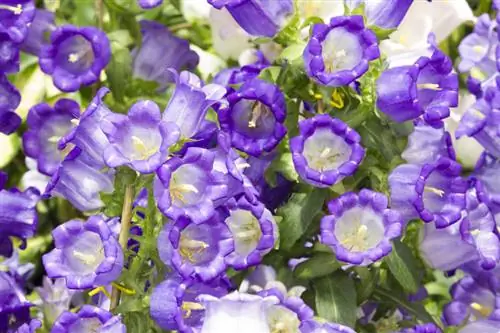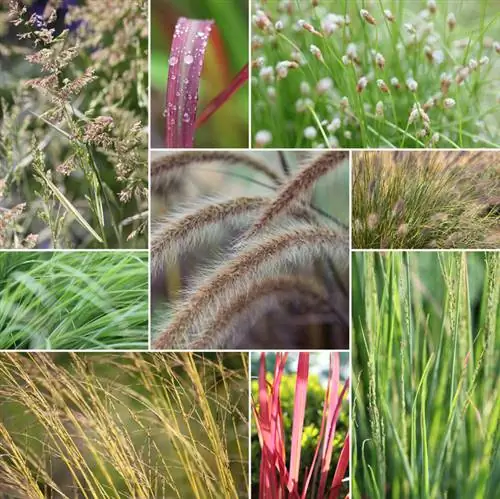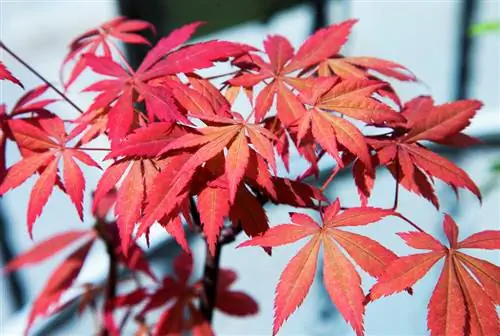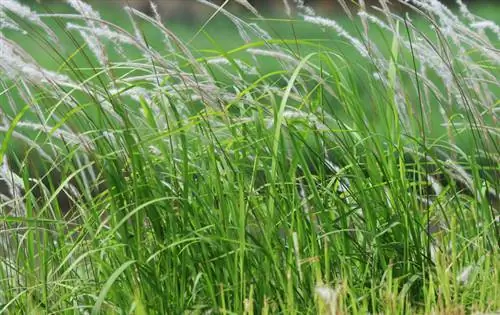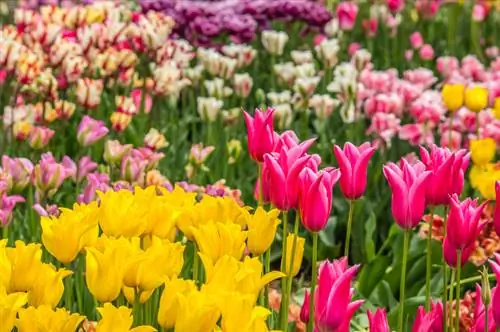- Author admin leonars@hobbygardeners.com.
- Public 2023-12-16 16:46.
- Last modified 2025-01-23 11:20.
Anyone who thinks that bluebells all look the same is wrong - although there are certainly similarities in the shape of the flowers, otherwise the numerous species differ greatly from one another. The differences are due to their geographical origin, as bluebells are found almost everywhere in the world.
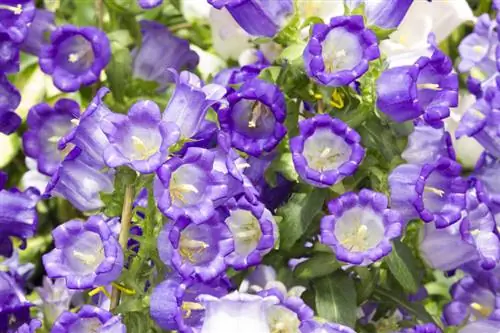
What types of bellflowers are there?
The most well-known types of bellflowers include St. Mary's bellflower, ball-bellflower, peach-leaved bellflower, hanging cushion bellflower, star bellflower, Caucasus bellflower, pyramidal bellflower, dotted bellflower, meadow bellflower, broad-leaved bellflower and dwarf bellflower. Each species has individual characteristics, such as flower colors, flowering time, height and origin.
Bluebells are widespread
Bluebells can be found almost everywhere in the world. Of the approximately 300 to 500 different species (the exact number and their classification is controversial among botanists), around 20 to 30 can be found wild in Central Europe, most of them in northern Italy, northern Spain, southern France as well as in the Alps and the Caucasus. Especially in the high mountains there are bluebell species that thrive exclusively in the very limited habitat there. Other campanulas were specifically bred for cultivation in the garden or as houseplants.
Overview of the most beautiful bellflower species
In the table below we have put together some of the most beautiful Campanula species that are most suitable for German gardens and balconies.
| Art | Latin name | Origin | Bloom | Flowering time | Growth height | Features |
|---|---|---|---|---|---|---|
| Marie's bellflower | Campanula medium | Italy and southern France | big; blue, pink, violet, white | May to July | 60 to 90 cm | tall |
| Ballbellflower | C. glomerata | Europe, Iran, Mongolia | dark purple | June to September | 30 to 60 cm | pillow-like |
| Peach-leaved Bellflower | C. persicifolia | Austria, Southern Germany | blue to violet | June and July | 30 to 80 cm | tall |
| Hanging Cushion Bellflower | C. poscharskyana | Southern Europe | light to dark purple | June and July | 10 to 15 cm | prefers shady locations |
| Star Bellflower | C. isophylla | Northern Italy | light blue or white | June and July | 10 to 20 cm | is good for pots |
| Caucasus Bellflower | C. raddeana | Caucasus | white | May to June | 10 to 30 cm | great for rock gardens |
| Pyramid Bellflower | C. pyramidalis | Northern Italy | light blue, light purple or white | June to August | 80 to 150 cm | also known as milk bell |
| Dotted Bellflower | C. punctata | Korea, Japan, China | reddish-white | June to July | 40 to 60 cm | prefers partial shade |
| Meadow bluebell | C. patula | Europe | light purple | June to July | 20 to 70 cm | widespread |
| Broad-leaved bellflower | C. latifolia | Alps, Thuringia, Saxony-Anh alt | light blue to light purple | June to August | 60 to 120 cm | grows v. a. at the edge of the forest |
| Dwarf Bellflower | C. cochleariifolia | Alps, Pyrenees | light blue | July to August | 5 to 15 cm | very hardy |
Tips & Tricks
Bellflower species such as the St. Mary's bellflower, the wall bellflower or the hanging bellflower are particularly suitable for planting in the garden.

